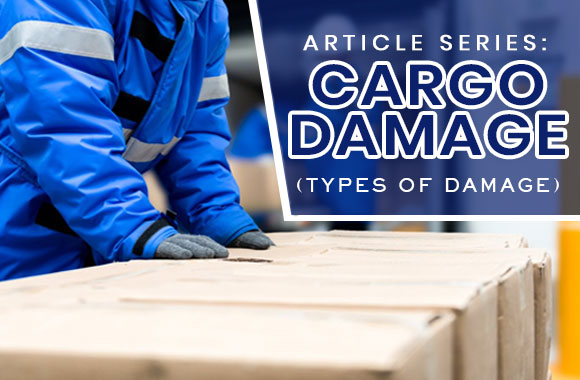Logistics
Logistics
After you find your ideal service provider, in this case, a customs agent, the process involves having to compile a number of required documents and a list of the inventory in question. If the agent is in the USA, UK, and the removal is to go to an EU country, then this is an export service, and vice versa.
We Are Your Logistics Specialist
Customs clearance is the process of declaring goods to Customs authorities when entering or leaving a country. Individuals or businesses can do this. Goods subject to customs clearance include items that are being imported or exported, as well as personal effects and commercial shipments.

We offer a range of delivery options and solutions for to assist in meeting our customer needs.
We use the most recent infrastructure and technology, as well as a delivery network comprised of stillages, crates, and roller cages We provide a range of solutions to meet your needs, and our customer experience is defined by dependability, value, and peace of mind. We collaborate with many of Ireland’s ,USA and the United Kingdom’s leading manufacturers, retailers, and distributors across all industry sectors.
We have an extensive storage facility catered to store products securely and effortlessly
Our temperature controlled storage solutions can cater for all product needs
We can offer Hazardous storage solutions
Value Added Services
Our value added solutions go beyond the standard e-commerce logistics services which come to mind when companies look to outsource logistics. There are a wide range of services that complement and enhance our logistics offerings as we support the smooth flow of shipments with additional services such as:
Reverse Logistics
We offer tailor-made solutions on Reverse Logistics in which effective coordination with end-consumers ensures timely pick-up and delivery of products back to partner establishment within 24 to 72 hours of intimation, every day for 365 days a year – including Sundays/Holidays so that end-customers receive their refunds in a timely manner. This unique service is supported by ready-to-ship packaging with best in class process capabilities in ensuring ease of pickup and returns.
QC Enabled Reverse Logistics(RVP+)
We offer Door Step Quality Check enabled Reverse Pickup Solutions for various product categories – be it mobile phones, household goods, apparels, electronic gadgets etc. The solution helps to curb return-related leakages and simplifies online shopping returns. Our dedicated and well-trained trained Associates carry out Quality Checks on products, subject to product conditions and other parameters meeting the customer’s return policy, resulting in faster refund or replacement for consumers.
Did you know? Insurance companies estimate that major fire on a cargo vessel at sea occurs every 60 days.
Storms, shipwrecks, and explosions happen. Containerization of seaborne trade, larger vessels, and wrongly declared dangerous goods have also contributed to an increase in ship fires in recent years. Here are just a few examples:
In the event of an accident, even if the vessel is saved, many containers may be severely damaged. Bad stowage and shore error are the largest contributors, and can result in physical or temperature related damage.
Cargo insurance can help you cover your losses in the event damage occurs.
Did you know? More than 3,000 shipping containers fell overboard in 2020.
According to a 2017 survey of ocean carriers by the World Shipping Council (WSC), an average of 1,390 containers are lost at sea each year based on figures from between 2014 to 2016. This number includes ‘catastrophic events’ where more than 50 containers are lost during a single event.
However, the number of containers that have been lost overboard has actually risen considerably in recent years. In fact, more than 3,000 shipping containers fell overboard in 2020. And as of April 2021, over 1,000 boxes have already fallen into the ocean.
Why are incidents of containers going overboard on the rise? Weather is becoming more severe and unpredictable and new mega vessels are often being loaded to maximum capacity. Those two factors combined put increased risk to cargo in transit and additional strain on your supply chain.
If an accident happens that causes your containers to go overboard, make sure you have Cargo Insurance so that you’re not dumping your money into the sea as well.
Did you know? When a carrier declares General Average, all cargo owners must pay a percentage of the total loss, even if their cargo is unaffected.
What is General Average? When a ship is in danger — for example, a fire, stranding, or other incident — the ship’s Master/shipowner may need to take action to preserve the safety of the ship and its crew, which could include jettisoning cargo overboard, emergency repairs or other action which may damage cargo. Incidents causing carriers to declare General Average have been increasing in recent years: Severe storms are becoming more frequent, and shockingly, fires on container ships are more common.
When a carrier declares “General Average”, all stakeholders, including cargo owners, must pay their cost of saving the vessel and cargo – even if their own cargo is not affected. Adjustors will assess the situation and determine the Salvage security and General Average security. These securities are variable percentages of the CIF (cost, insurance, and freight) value of the cargo that the shipper has on the affected vessel. The cargo owner must pay both to get their cargo released, otherwise they forfeit their cargo and it becomes property of the salvage company.
The cost of protecting your shipments is miniscule compared to the cost of a General Average claim.
For example, after a 2018 fire on the Maersk Honam, GA was declared and the adjustor fixed the salvage security at 42.5% of cargo value and 11.5% as a GA deposit – this meant a shipper with cargo worth $100,000 needed to pay a combined deposit of $54,000 to get its cargo released. Ouch! Insurance for this shipment, by comparison, would have been just $165.00.
If you’re insured with UWL’s Policy, the insurance company will issue an Average Guarantee and you will provide an Average Bond. This assures the prompt release of your cargo while your insurer takes care of the General Average contribution.
Without adequate insurance, the adjusters will likely request a cash deposit from you of a proportion of the value of your cargo, and your cargo will be held in trust until you have paid your part — which can take months or even years.
Did you know? In the US, cargo theft is a $15 billion to $30 billion a year problem according to the FBI.
Cargo theft, especially through identity theft and fictitious pickups, is on the rise. Not to mention piracy, which is a major risk to modern international shipping.
The Loadstar reported that almost €500,000 ($600,305) of goods were stolen from EMEA [Europe, Middle East and Africa] supply chains every day in 2019 and 2020, according to new data from the Transport Asset Protection Association (TAPA).
And BSI & TT Club’s 2021 Cargo Theft Report found that the pandemic brought about a heightened risk of crime. The dominant threat remained theft from freight vehicles in transit, but the report found a significant increase in theft from warehouses and other temporary storage facilities — these areas have become easy pickings for criminals as cargo backlogs pile up around the world.
Additionally, criminals have been targeting PPE and other medical equipment in particular during the pandemic.
A proactive Cargo Insurance policy with UWL can provide peace of mind in the event a pesky pirate pilfers your priceless products.


